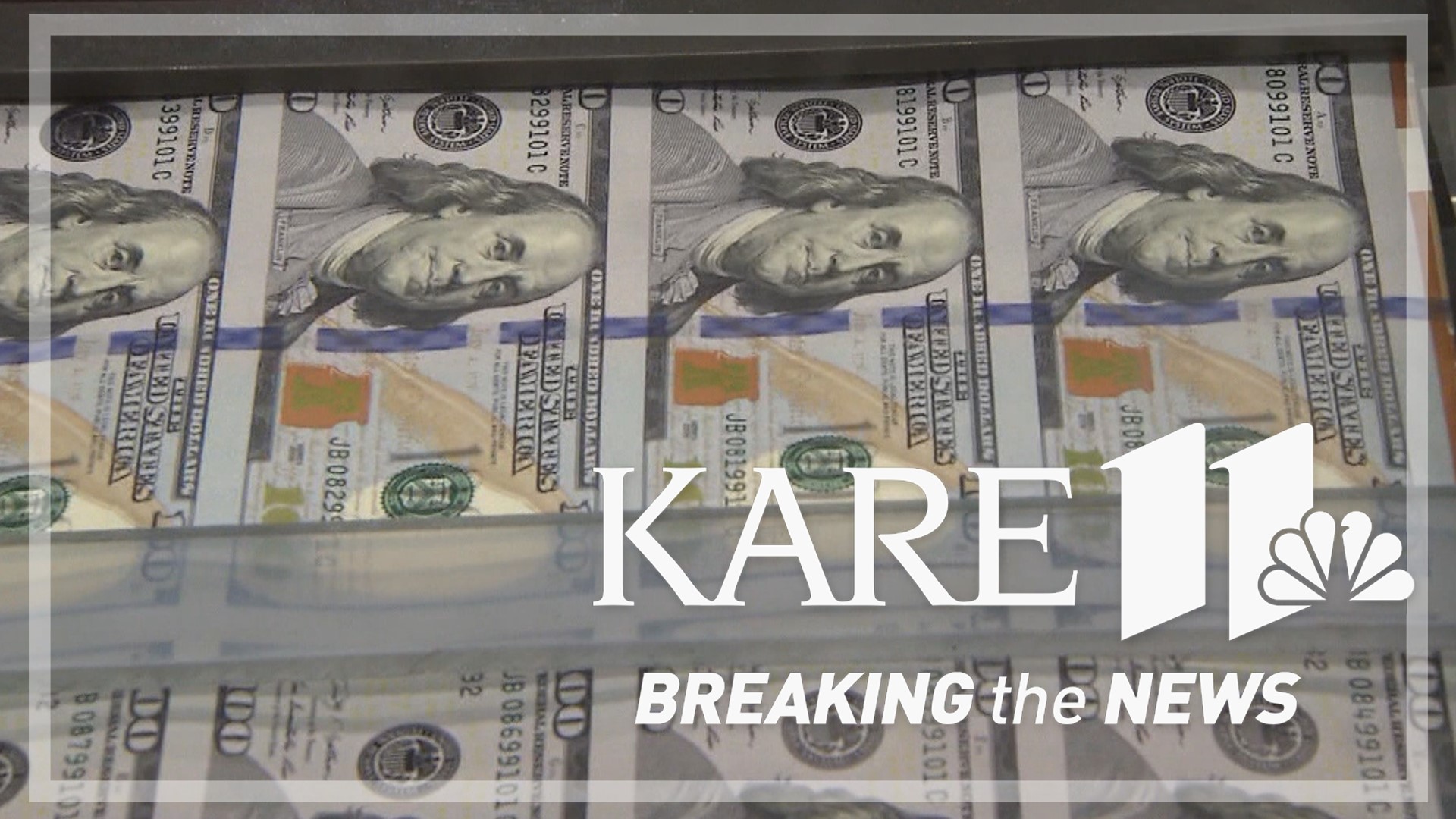MINNEAPOLIS — The latest consumer price index went up 0.1% last month, according to the latest data released Tuesday morning.
In most situations, 0.1% is a very small number, but that small number is about to have a big impact because many analysts were expecting a positive number last month — not a negative one.
"The Fed is probably looking with a little dismay. They were hoping for bigger reductions in inflation,” Tyler Schipper, an economics professor at the University of St. Thomas, said.
Many economists believed the Fed was on the fence about raising interest rates later this month, but after these latest numbers, economists believe a rate hike is pretty much a guarantee at this point.
"All but guaranteed,” Schipper says. "I think we're almost locked in at a 0.75% increase."
An increase that will show up in mortgages, car loans, and especially credit cards.
"One of the places this affects normal people is on their credit cards and it passes through pretty quickly to credit cards,” Schipper says.
And credit card debt is getting even more expensive to pay off.
That's concerning considering a new study from WalletHub that showed in the second quarter of this year, between the months of April and June, Americans racked up more than $67 billion in credit card debt.
According to WalletHub, that’s a new record for the second quarter, which is normally a slower time for spending.
Jill Gonzalez is an analyst with WalletHub.
She says the results from this study show how inflation is really starting to affect Americans' budgets.
"U.S. consumers seem to be back to bad habits when it comes to credit card debt,” Gonzalez says.
With many Americans already spending their savings and leftover stimulus money, they're now turning to credit cards at a time when credit card debt is getting more expensive by the day.
WalletHub analysts say if the fed does raise interest rates by 0.75% this month, it will end up costing Americans with credit card debt an additional $5.3 billion in interest over the next 12 months.
"It is not great for consumers. That's why we really do want to push toward payoff rather than incurring new debt, but that's, of course, easier said than done, especially with inflation on everyday needs,” Gonzalez said.
And especially as we move into the most expensive time of the year.
"People are still going to buy Christmas presents. They're still going to have those holiday dinners and they might find ways to economize on them but it's hard to do,” Schipper explains.
That's why economists are encouraging Americans to start budgeting now, because borrowing later will only cost you more as time goes on.
We wanted to see how all of this is affecting KARE 11 viewers.
We posted a poll on our Twitter page Tuesday morning and asked viewers how this inflationary environment is affecting their personal finances.
The poll received 179 votes.
Half of the respondents say they’re doing just fine; around 26% say they’re now dipping into their savings; and 23.5% say they’re taking on more debt to pay the bills.
Watch more Breaking The News:
Watch all of the latest stories from Breaking The News in our YouTube playlist:

